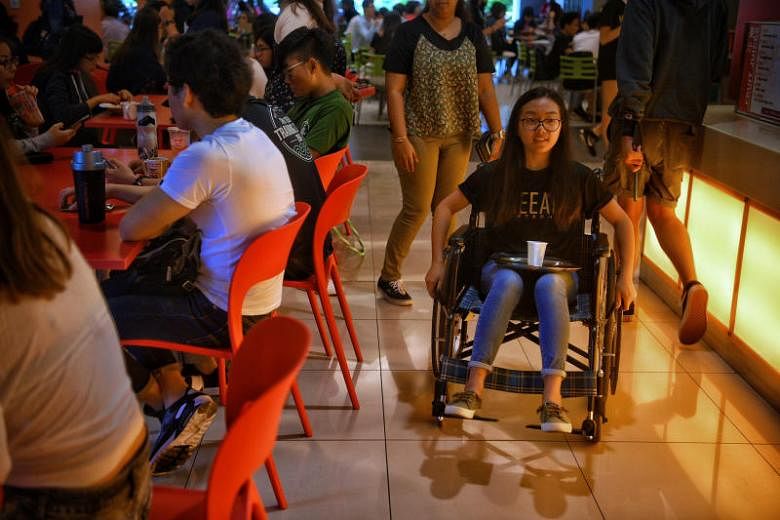SINGAPORE - Polytechnic and Institute of Technical Education students with severe hearing, physical and visual disabilities can now receive up to $70,000 in support.
This additional funding will be disbursed as part of a new high-needs category under the existing MOE Special Educational Needs (SEN) fund, which was launched in 2014.
Minister for Education (Higher Education & Skills) Ong Ye Kung announced the additional funding at the ITE-SPD conference at the ITE Headquarters in Ang Mo Kio on Wednesday (Sept 20).
Said Mr Ong: "There are a handful of cases where the support required is far more acute. In view of these, MOE has decided to create a High-Needs category under the SEN Fund, and provide greater support for these students."
The funding, capped at $70,000 and provided over the duration of the student's course, will help such students buy assistive technology devices and support services, such as note-taking and signing interpretation.
Those with less severe physical impairments will continue receiving up to $5,000, and those with less severe hearing or visual disabilities will continue to receive up to $25,000.
Eligible recipients must be Singaporean, full-time students at a polytechnic or the ITE, and be professionally certified to have severe physical or sensory impairment. Family income is not one of the criteria.
SPD President Chia Yong Yong welcomed the new higher funding category. "In general, people with more serious needs will require more expensive devices. Not just a single device, but a whole suite of services," she said.
She said it was "extremely helpful" to recognise that "people with special needs or disabilities have a spectrum of different limitations."
This comes as the awareness for people with disabilities has grown here. Said Ms Chia: "A rising number of education institutions, and for that matter, more public services and Singaporeans, are taking the initiative to learn more about disabilities. We are slowly witnessing a paradigm shift from avoidance and apathy to acceptance of persons with disabilities in our social and educational space."
At the conference, Mr Ong also provided an update on the Post-Secondary Education Account (PSEA) for students with SEN, which he had previously announced will be expanded to cover training courses supported by SG Enable and other workshops approved by MSF.
He said that more than 50 training courses can now be funded by the PSEA, ranging from IT to hospitality. Students with SEN can now use their PSEA to attend SPD's training courses on digital tools and communication.
The conference, titled Inclusiveness: Innovations in Wellness, drew 400 people, including educators, academics, policy-makers and caregivers. It aims to look at innovative ways of making it easier for students with special needs to take part in art, drama, music and sports, for instance through assistive technology.


